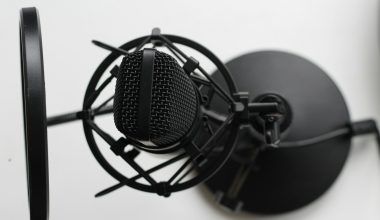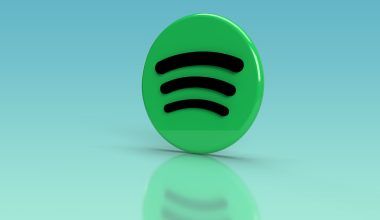Making your own song is a rewarding and creative process that allows you to express your feelings and share your unique sound with the world. Whether you’re a beginner or an experienced musician, this guide will help you create your own song from scratch. We’ll cover everything from finding inspiration to promoting your music. Let’s dive in!
Table of Contents
- Finding Inspiration
- Understanding Music Theory
- Writing Lyrics
- Choosing Your Instruments
- Setting Up a Home Studio
- Recording Your Music
- Editing and Mixing
- Mastering Your Track
- Distributing Your Music
- Promoting Your Music
1. Finding Inspiration
Embrace Your Influences
To learn how do you make your own music, start by exploring various genres and artists to understand what resonates with you. Listen to different styles of music and identify elements that you like. This will help you develop your unique sound.
Keep a Journal
Write down your thoughts, feelings, and experiences. This journal can be a valuable resource when you’re looking for lyrical inspiration. Sometimes, the best songs come from personal stories.
Experiment with Sounds
Play around with different sounds and instruments. You don’t need to stick to traditional instruments; you can use anything that makes a sound. This experimentation can lead to the discovery of your signature style.
Stay Open to New Ideas
Inspiration can come from unexpected places. Stay open to new ideas and experiences, as they can provide the spark you need to create your own song.
2. Understanding Music Theory
Basics of Music Theory
Having a basic understanding of music theory can greatly enhance your ability to learn how do you make your own music. Learn about scales, chords, and how they work together to form melodies and harmonies.
Online Resources
There are plenty of online resources available to help you learn music theory. Websites like Coursera, YouTube, and Khan Academy offer free courses that can get you started.
Practice Regularly
Like any other skill, understanding music theory requires regular practice. Dedicate time each day to study and practice, and soon you’ll be able to apply these principles to your music.
Application in Composition
Apply what you learn in music theory to your compositions. Experiment with different chord progressions and scales to see how they change the mood and feel of your music. This will help you develop your own music style and understand how do you make your own music.
3. Writing Lyrics
Start with a Theme
Think about the message or story you want to convey through your song. Having a clear theme can guide your lyric writing process, making it easier to create your own song.
Use Simple Language
Your lyrics don’t need to be complex. Using simple and relatable language can make your song more accessible to a wider audience.
Rhyme and Rhythm
Pay attention to the rhyme and rhythm of your lyrics. They should flow naturally with the melody and beat of your song, aiding in your quest to create your own song.
Personal Experiences
Draw from your personal experiences when writing lyrics. Authenticity resonates with listeners, making your music more relatable and impactful.
Collaboration
Consider collaborating with other songwriters. Sometimes, a fresh perspective can help you create your own song that is more diverse and enriched.
4. Choosing Your Instruments
Pick What You Love
Choose instruments that you enjoy playing and that fit the style of music you want to create. Whether it’s a guitar, piano, or a digital synthesizer, make sure it inspires you.
Learn the Basics
If you’re new to an instrument, start by learning the basics. There are many tutorials available online that can help you get started on how do you make your own music.
Experiment with Different Sounds
Don’t be afraid to experiment with different instruments and sounds. This can lead to unique and innovative music.
Digital Instruments
With the advancement of technology, you can now make your own song using digital instruments and software. Explore virtual instruments and digital audio workstations (DAWs) to expand your musical palette.
Multi-Instrumentalism
Learn to play multiple instruments. This not only broadens your musical skills but also gives you more control over the music you create. This skill is beneficial in mastering how do you make your own music.
5. Setting Up a Home Studio
Essential Equipment to make your own song
To make your own song at home, you’ll need some basic equipment:
- A computer with music production software (DAW)
- A good quality microphone
- Audio interface
- MIDI keyboard
- Studio monitors or good quality headphones
Acoustic Treatment
Improving the acoustics of your room can make a big difference in the quality of your recordings. Use foam panels or blankets to reduce echo and background noise.
Software and Plugins
Invest in good quality music production software and plugins. Some popular DAWs include Ableton Live, FL Studio, and Logic Pro. These tools are essential for how do you make your own music.
Budget Considerations
You don’t need to break the bank to set up a home studio. Start with essential equipment and upgrade as you go. There are many affordable options available that can help you make your own song without compromising on quality.
Organization
Keep your studio organized. A clutter-free environment can boost your creativity and productivity, making it easier to focus on your music.
6. Recording Your Music
Setting Up Your Session
Before you start recording, set up your session in your DAW. Create separate tracks for each instrument and vocal.
Mic Placement
Proper mic placement is crucial for capturing high-quality audio. Experiment with different positions to find the best sound. Learning this is vital for how do you make your own music.
Record Multiple Takes
Record multiple takes of each part. This will give you more options to choose from during the editing process.
Vocal Recording Tips
When recording vocals, make sure to warm up your voice, stay hydrated, and use a pop filter to reduce plosive sounds. This will help you achieve a clear and professional sound.
Instrument Recording Tips
For instruments, ensure they are properly tuned and in good condition. Use direct input (DI) for electric instruments and appropriate microphones for acoustic instruments to capture the best sound quality.
7. Editing and Mixing
Editing
Once you have all your tracks recorded, start by editing them. Remove any unwanted noise, and align the tracks to ensure they are in sync.
Mixing
Mixing involves balancing the levels of each track, adding effects like reverb and delay, and panning instruments to create a stereo image. This step is crucial to make your music sound polished and professional.
Use Reference Tracks
Compare your mix to professional tracks in a similar genre. This can help you identify areas for improvement and ensure your mix sounds good across different playback systems.
Automation
Use automation in your DAW to control volume, panning, and effects over time. This can add dynamic changes to your mix and make it more interesting.
Final Checks
Before finalizing your mix, listen to it on different speakers and headphones to ensure it sounds good everywhere. Make any necessary adjustments to achieve a balanced and cohesive sound.
8. Mastering Your Track
What is Mastering?
Mastering is the final step in the music production process. It involves enhancing the overall sound of your mix and preparing it for distribution.
DIY Mastering
There are many online mastering tools that can help you master your tracks. Alternatively, you can learn to do it yourself using plugins in your DAW.
Professional Mastering
For the best results, consider hiring a professional mastering engineer. They have the expertise and equipment to ensure your music sounds its best.
Mastering Tips
When mastering, aim for a balanced frequency spectrum, controlled dynamics, and proper loudness. Avoid over-compressing or boosting frequencies too much.
Mastering for Different Platforms
Consider the requirements of different platforms when mastering your music. Streaming services, CDs, and vinyl records may require different mastering approaches to ensure optimal playback quality.
9. Distributing Your Music
Digital Distribution
Use digital distribution services like Deliver My Tune, DistroKid, or TuneCore to get your music on streaming platforms like Spotify, Apple Music, and Amazon Music.
Create an Artist Profile
Create and maintain an artist profile on streaming platforms. This helps listeners find your music and learn more about you.
Physical Distribution
If you prefer physical formats, consider producing CDs or vinyl records. You can sell them at gigs or through your website.
Metadata
Ensure your metadata is accurate and complete. This includes song titles, artist names, album artwork, and genre tags. Proper metadata helps your music get discovered on streaming platforms.
Release Strategy
Plan your release strategy carefully. Consider timing, promotional efforts, and release formats to maximize the impact of your music.
10. Promoting Your Music
Promote your music on social media platforms like Instagram, Facebook, and Twitter. Share updates, behind-the-scenes content, and engage with your audience.
Music Videos
Create music videos for your songs. Videos can help attract new listeners and give your music a visual identity.
Live Performances
Perform live whenever possible. Live shows are a great way to connect with your audience and promote your music.
Collaborate with Other Artists
Collaborate with other musicians and artists. This can help you reach new audiences and create exciting new music.
Press and Media
Reach out to music blogs, magazines, and radio stations to feature your music. Getting media coverage can boost your visibility and credibility as an artist.
Email Marketing
Build an email list of your fans and send regular updates about your music. Email marketing is a direct and personal way to keep your audience engaged. This is a key tactic in promoting how do you make your own music.
Networking
Attend music industry events, workshops, and conferences to network with other musicians and industry professionals. Building relationships can open doors to new opportunities. Networking is essential for learning how do you make your own music in a professional context.
Online Communities
Join online communities and forums related to your genre. Engage in discussions, share your music, and support other artists. This can help you build a supportive network and gain new fans. Online engagement is a great way to promote how do you make your own music.
Conclusion
Making your own song is a journey that involves creativity, learning, and perseverance. By following the steps outlined in this guide, you can develop your skills and understand how do you make your own music that reflects your unique style and vision. Remember, the key to success is to keep experimenting, learning, and most importantly, enjoying the process of making your own song.
For further reading, explore these related articles:
- How to Create an Instagram Broadcast Channel and Promote Music on It
- Promote Your Music on Instagram Reels
- How to Get Your Song Copyrighted?
For additional resources on music marketing and distribution, visit Deliver My Tune.






